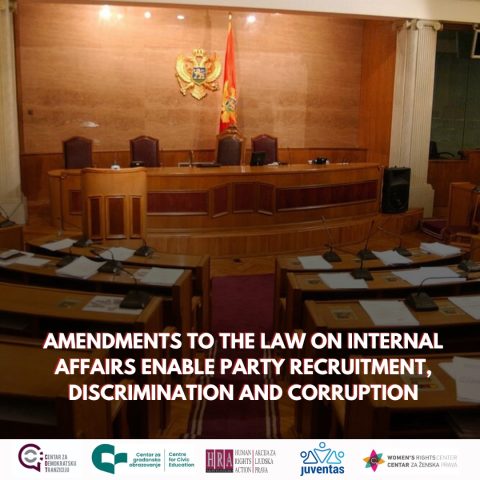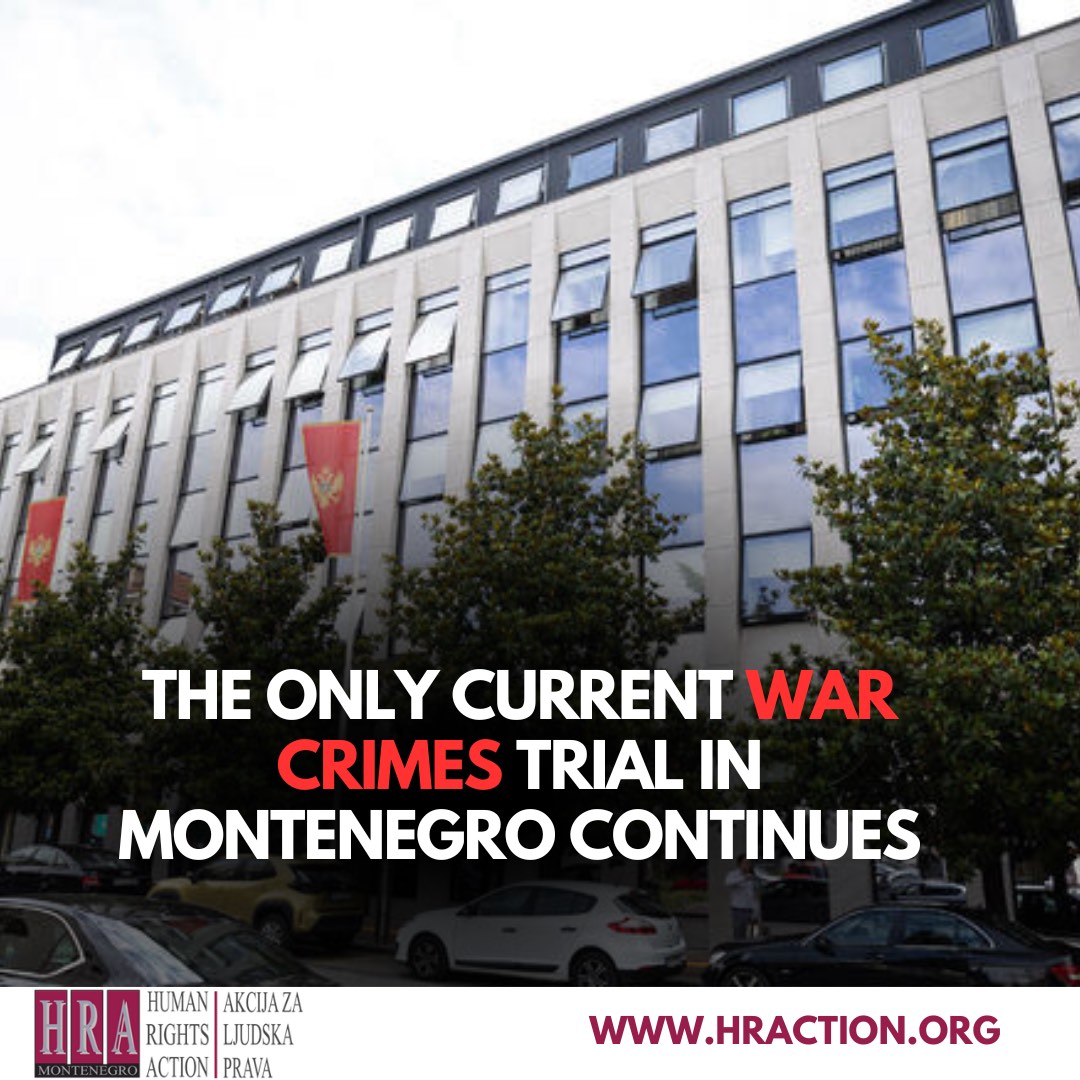AMENDMENTS TO THE LAW ON INTERNAL AFFAIRS ENABLE PARTY RECRUITMENT, DISCRIMINATION AND CORRUPTION

Amendments to the Law on Internal Affairs, which were adopted by the National Assembly of Montenegro on 4 September 2024 at the proposal of the Government, are contrary to the GRECO recommendations on the fight against corruption and the recommendations of the UN Committee against Torture, because they introduced political control of the employment process and discriminatory criteria for the advancement of police officers, while simultaneously reducing the level of training required for advancement.
We appeal to the authorities to repeal the disputed provisions of the Law on Internal Affairs, ensure depoliticised employment through the Human Resources Administration, and to refrain from lowering the mandatory level of training for police officers; in fact, we ask that it be increased in accordance with the recommendations of the Committee against Torture. We appeal to the EU and international organisations that monitor the implementation of the rule of law in Montenegro to pay attention to these statutory changes and, in line with their mandates, influence the authorities to abandon them.
We remind that the current Minister of the Interior Danilo Šaranović (Democratic Montenegro) has already appointed a person who had been convicted of abuse as his head of security, and promoted him to the position of investigator of the use of coercive measures. Amendments to the Law on Internal Affairs now give the Minister a free hand to employ staff. Considering the above described previous behaviour, it is not difficult to guess what things will look like now, and what their consequences for human rights and the necessary professionalisation of the police structure will be.
Exclusion of the Human Resources Administration from the process of recruitment and extraordinary promotion openly encourage nepotism and partitocracy. Instead of an independent commission verifying the knowledge, abilities, competences and skills of candidates for employment in the Police Administration and the Ministry of Internal Affairs, it will now be the Minister who will both form the commission and prescribe the criteria that said commission will be applying. Also, the amendments introduce the concept of “extraordinary promotion”, which allows politically proper officials to be promoted based on an abbreviated procedure, without public announcements and additional verification of knowledge and abilities. All this is contrary to the GRECO recommendations on the fight against corruption in Montenegro, which require that all appointments in the police force be based on merit, without inappropriate political influence.
The new “special recruitment procedure” (Article 133a) will be implemented without public advertisement and a staffing plan, contrary to the provisions of the Law on Civil Servants and State Employees (Article 10) which guarantee equal access to job positions to all citizens. Instead of transparent advertising through the Employment Office and the Human Resources Administration, public announcements of job positions in the Police Administration will now appear only on the Internet presentation and the notice board of the Ministry of Internal Affairs (Article 133a, paragraph 2.)
The amendments also allow for discrimination against persons who, this year or in the previous year, established an employment relationship under the title “police officer” within regular procedure (from Article 152). They will be able to advance no earlier than five years after the date they established the employment relationship (Article 133 paragraph 3), i.e. in 2028-2029, while – according to the amendments to the Law – those who were employed under the “special procedure” will be able to advance after three years (Article 133d, paragraph 2), i.e. in 2027, significantly before their colleagues who have been employed for quite a while.
In addition, police officers used to be able to advance only if they spent two years at a certain position and had undergone appropriate mandatory training. This process has now been shortened, and a person needs only one year of employment to be able to advance (Article 143). It may sound incredible, but the Law now stipulates that training in the field of criminalist techniques, dealing with vulnerable categories of persons, actions of special units, etc. is no longer required for promotion (Article 143, paragraph 3). This represents a serious danger for the protection of human rights in Montenegro and is in complete contravention with, e.g. the request of the UN Committee against Torture that Montenegro increase both basic and continuous mandatory training for police officers.
Human Rights Action (HRA)
Centre for Democratic Transition (CDT)
Centre for Civic Education (CCE)
Women’s Rights Centre (WRC)
Juventas







 English
English
